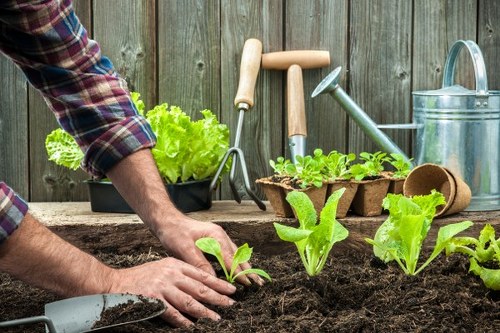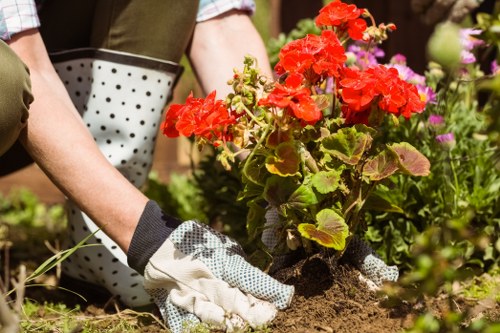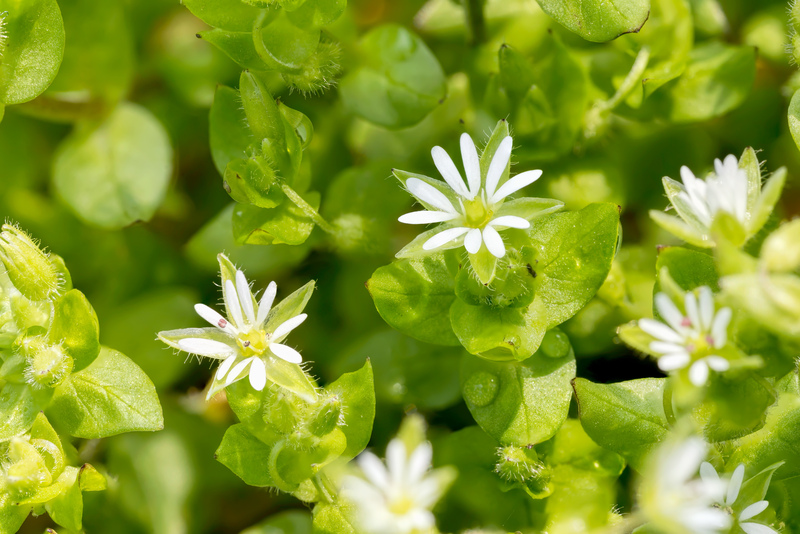Comprehensive Guide to Garden Maintenance in Gipsy Hill

Maintaining a beautiful garden in Gipsy Hill requires dedication, knowledge, and the right resources. Whether you're a seasoned gardener or just starting out, understanding the unique climate and soil conditions of Gipsy Hill can help you create a thriving outdoor space. In this article, we will explore various aspects of garden maintenance tailored specifically for residents of Gipsy Hill.
One of the first steps in effective garden maintenance is soil preparation. The soil in Gipsy Hill can vary, so it's essential to test your soil to determine its pH and nutrient levels. This information will guide you in selecting the right fertilizers and amendments to ensure your plants receive the nutrients they need to flourish.
Proper watering techniques are crucial for garden success. In Gipsy Hill, the climate may present challenges such as irregular rainfall patterns. Implementing a consistent watering schedule, using drip irrigation systems, and incorporating mulch can help retain soil moisture and reduce water wastage.

Choosing the Right Plants for Gipsy Hill Gardens
Selecting plants that are well-suited to the local climate and soil conditions is vital for a sustainable garden. Native plants and those adapted to the specific environmental conditions of Gipsy Hill tend to require less maintenance and are more resilient against pests and diseases.
Consider incorporating a mix of evergreen and deciduous plants to ensure your garden remains attractive throughout the year. Evergreen plants provide structure and color during the colder months, while deciduous plants offer vibrant blooms and foliage in the spring and summer.
Don't forget to include a variety of flowering plants to attract pollinators like bees and butterflies. This not only enhances the beauty of your garden but also supports the local ecosystem.

Seasonal Garden Maintenance Tasks
Spring Maintenance
Spring is a critical time for garden maintenance in Gipsy Hill. Begin by clearing any debris from the winter months, such as fallen leaves and dead branches. This helps prevent the spread of diseases and pests.
Pruning is also essential in the spring. Remove any dead or damaged branches from your shrubs and trees to promote healthy growth and improve air circulation.
Additionally, spring is the perfect time to plant new flowers, vegetables, and herbs. Make sure to choose varieties that are well-suited to the upcoming summer conditions.

Summer Maintenance
During the summer months, focus on watering and pest control. Ensure that your garden receives adequate water, especially during periods of drought. Early morning is the best time to water your plants to reduce evaporation and fungal growth.
Monitor your garden regularly for signs of pests and address any issues promptly. Using organic pest control methods can help maintain a healthy garden ecosystem without harming beneficial insects.
Weeding is another important task in the summer. Regularly remove weeds to prevent them from competing with your plants for nutrients and water.

Autumn and Winter Maintenance
As the seasons change, it's important to prepare your garden for the colder months. In autumn, focus on planting spring bulbs, trimming perennials, and adding compost to enrich the soil.
Winter maintenance involves protecting your plants from frost and extreme weather. Mulching around the base of your plants can help insulate the roots and retain soil moisture.
It's also a good time to plan for the next gardening season. Assess what worked well in your garden this year and make adjustments to improve your garden's health and appearance in the future.
Essential Tools for Garden Maintenance in Gipsy Hill
Having the right tools is essential for efficient garden maintenance. Investing in quality tools can make your gardening tasks easier and more enjoyable.
- Pruning Shears: Essential for trimming and shaping plants.
- Garden Fork: Great for aerating the soil and removing weeds.
- Watering Can or Hose: Ensure consistent watering of your plants.
- Gloves: Protect your hands while working in the garden.
- Wheelbarrow: Useful for transporting soil, compost, and plants.
Maintaining your tools is also important. Regularly clean and sharpen your tools to ensure they last longer and perform better.
In addition to basic tools, consider investing in a compost bin to recycle organic waste and create nutrient-rich compost for your garden.
Implementing Sustainable Practices
Sustainability is becoming increasingly important in garden maintenance. Implementing eco-friendly practices can benefit both your garden and the environment.
One effective sustainable practice is rainwater harvesting. Collecting rainwater for your garden reduces the demand on local water supplies and provides your plants with natural, chemical-free water.
Composting is another sustainable practice that recycles kitchen and garden waste into valuable fertilizer. It enriches the soil, improves its structure, and promotes healthy plant growth.
Reducing Chemical Usage
Minimizing the use of chemical fertilizers and pesticides is beneficial for the environment and your garden's health. Opt for organic alternatives and natural pest control methods to maintain a balanced ecosystem.
Encouraging biodiversity by planting a variety of species can naturally deter pests and reduce the need for chemical interventions.
Additionally, using mulch can help suppress weeds, retain soil moisture, and regulate soil temperature, all of which contribute to a healthier garden.
Enhancing Garden Aesthetics
Aesthetic appeal is a significant aspect of garden maintenance. Creating a visually pleasing garden involves careful planning and attention to detail.
Incorporate different textures, colors, and plant heights to add depth and interest to your garden. Combining flowering plants with foliage plants can create a dynamic and vibrant landscape.
Using garden ornaments, such as statues, fountains, and lighting, can enhance the ambiance of your garden, making it a relaxing and enjoyable space.
Creating Functional Spaces
Designing functional areas within your garden can improve its usability. Consider adding seating areas, pergolas, or pathways to create distinct zones for relaxation, dining, or entertaining.
Raised beds and container gardening are excellent solutions for maximizing space and organizing your garden efficiently.
Integrating features like vegetable beds or herb gardens can also add practicality to your garden, providing fresh produce for your kitchen.
Dealing with Common Garden Challenges
Every garden faces its own set of challenges. Being prepared to address these issues can help maintain a healthy and beautiful garden in Gipsy Hill.
Common problems include pest infestations, plant diseases, and weed overgrowth. Regular monitoring and early intervention are key to preventing these issues from escalating.
Implementing integrated pest management (IPM) strategies can help manage pests effectively while minimizing environmental impact.
Managing Pest Infestations
Pests can cause significant damage to your garden if not controlled. Identify the types of pests affecting your plants and choose appropriate control methods.
Encouraging natural predators, such as ladybugs and birds, can help keep pest populations in check.
Using barriers, such as netting or row covers, can protect your plants from larger pests.
Professional Garden Maintenance Services in Gipsy Hill
While DIY garden maintenance is rewarding, sometimes hiring professional services can ensure the job is done efficiently and effectively.
Professional gardeners have the expertise and equipment to handle complex maintenance tasks, such as tree pruning, soil testing, and landscape design.
They can also provide valuable advice on plant selection, sustainable practices, and long-term garden planning.
Benefits of Hiring Professionals
Hiring professional garden maintenance services can save you time and effort, allowing you to enjoy your garden without the stress of upkeep.
Professionals can identify and address issues that may not be apparent to the untrained eye, ensuring your garden remains healthy and vibrant.
Additionally, they can offer customized maintenance plans tailored to your garden's specific needs and your personal preferences.
Conclusion
 In summary, effective garden maintenance in Gipsy Hill involves a combination of proper planning, regular care, and sustainable practices. By understanding the local climate, selecting suitable plants, and implementing essential maintenance tasks, you can create a beautiful and thriving garden that enhances your outdoor living space.
In summary, effective garden maintenance in Gipsy Hill involves a combination of proper planning, regular care, and sustainable practices. By understanding the local climate, selecting suitable plants, and implementing essential maintenance tasks, you can create a beautiful and thriving garden that enhances your outdoor living space.
Whether you choose to maintain your garden yourself or enlist the help of professional services, the key to success lies in dedication and a willingness to continuously learn and adapt to your garden's needs.
